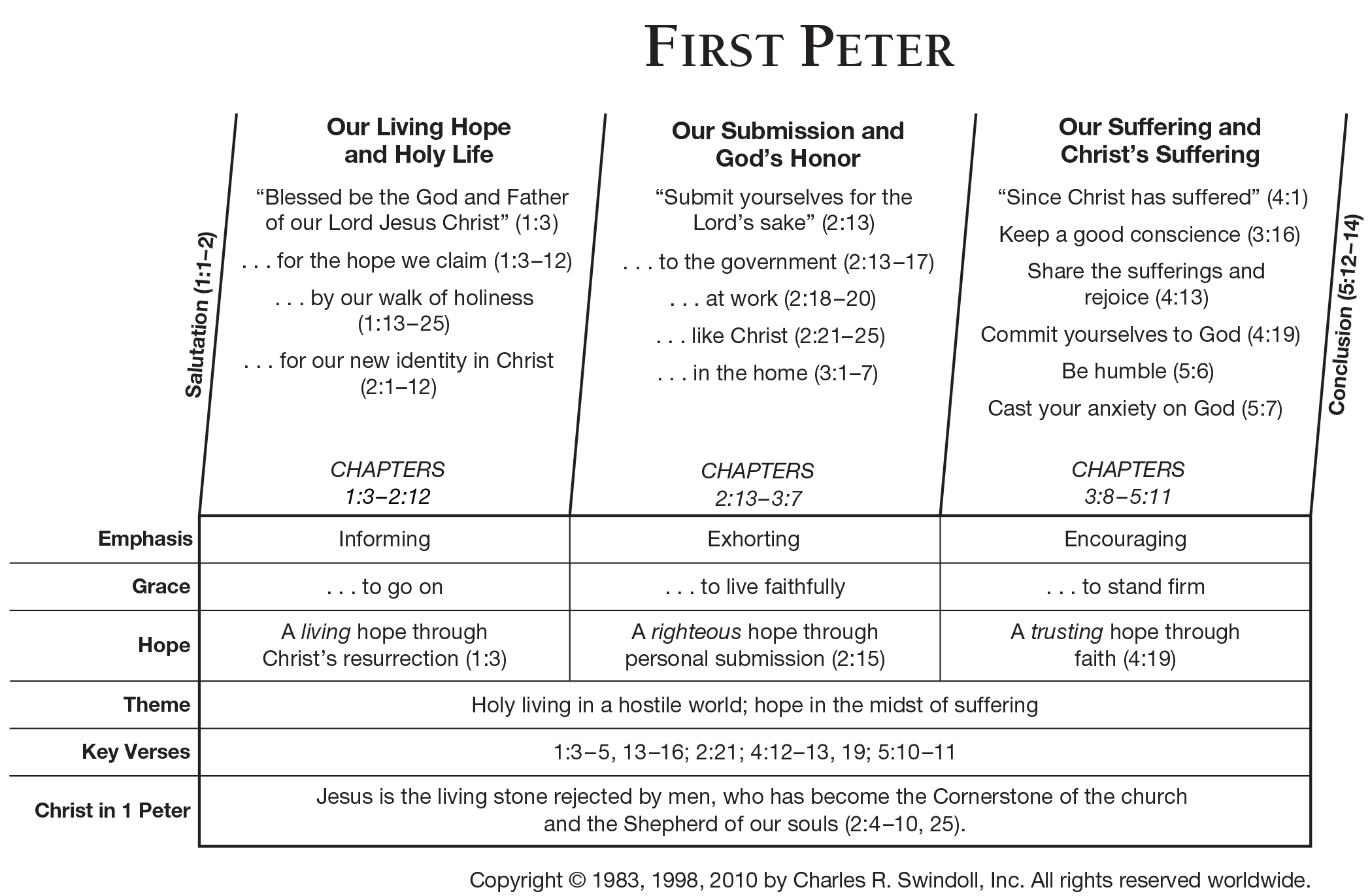1st Peter chapter 2 invites us on an inspiring journey, exploring our Christian identity as chosen people called to live as aliens and exiles in this world. Through our actions and words, we proclaim God’s excellencies, reflecting His glory in all we do.
This chapter provides practical guidance for Christian conduct, urging us to abstain from fleshly lusts and submit to authorities, honoring others and living in peace and harmony. It also sheds light on the role of suffering in the Christian life, reminding us of Christ’s example and encouraging us to endure with perseverance.
Christian Identity in 1 Peter Chapter 2

In 1 Peter 2, the apostle Peter expounds on the distinctive identity of Christians in the world. He begins by declaring that they are “a chosen race, a royal priesthood, a holy nation, a people for God’s own possession” (v. 9). This passage emphasizes the unique calling and purpose of Christians as God’s chosen people, set apart for His service and glory.
Significance of Christian Identity
The significance of this identity lies in the privileges and responsibilities it entails. As a “chosen race,” Christians are called to be a distinct and holy people, living in accordance with God’s will and reflecting His character in the world. They are a “royal priesthood,” offering spiritual sacrifices of praise and worship to God and interceding for others. As a “holy nation,” they are set apart for God’s exclusive use, living in obedience to His laws and striving for holiness. Finally, they are “a people for God’s own possession,” belonging exclusively to Him and entrusted with the task of proclaiming His excellencies to the world.
Christian Conduct in 1 Peter Chapter 2

In 1 Peter chapter 2, the apostle Peter exhorts believers to live out their Christian faith in a manner that glorifies God and edifies others. This includes abstaining from fleshly lusts, submitting to authorities, honoring others, and living in peace and harmony.
Abstaining from Fleshly Lusts
Peter urges believers to “abstain from fleshly lusts” (v. 11). These lusts are not limited to sexual desires but encompass any sinful cravings that can lead us astray. They can manifest in various forms, such as greed, envy, pride, and addiction. By resisting these lusts, we demonstrate our commitment to God and our desire to live holy and righteous lives.
Submitting to Authorities and Honoring Others
Peter also emphasizes the importance of submitting to authorities and honoring others (v. 13-17). This does not mean blindly obeying every command but rather recognizing the God-ordained authority of those in positions of leadership. We are to honor our rulers, employers, and even those who may mistreat us. By doing so, we show that we are not only law-abiding citizens but also followers of Christ, who taught us to love our enemies and pray for those who persecute us.
Living in Peace and Harmony
Finally, Peter exhorts believers to live in peace and harmony with others (v. 18-25). This means being respectful, considerate, and forgiving. We are to avoid causing offense and instead seek to promote unity and reconciliation. By living in peace, we reflect the character of Christ, who came to bring peace between God and humanity.
Suffering and Perseverance in 1 Peter Chapter 2

Suffering is an inevitable part of the Christian life. In 1 Peter 2:19-20, Peter addresses the role of suffering and how Christians should respond to it. He emphasizes the importance of perseverance and following Christ’s example in the face of adversity.
Christ’s Example, 1st peter chapter 2
Peter points to Christ as the ultimate example of suffering and perseverance. Christ endured unjust suffering and persecution without complaint, even when it led to his crucifixion. By following Christ’s example, Christians can learn to endure their own sufferings with grace and humility.
Stories of Perseverance
Throughout history, countless Christians have persevered through suffering and emerged stronger in their faith. One example is Corrie ten Boom, a Dutch woman who was imprisoned in a concentration camp during World War II. Despite the horrors she endured, she never lost her faith in God and became a powerful witness to the world.
Perseverance and Reward
Peter concludes by reminding Christians that perseverance in suffering will ultimately lead to reward. Those who endure with faith will receive a crown of glory that will never fade. This promise gives hope and encouragement to Christians facing adversity, reminding them that their suffering is not in vain.
Christian Hope in 1 Peter Chapter 2: 1st Peter Chapter 2

Amidst the challenges of suffering and persecution, the Christian faith offers a profound hope that sustains believers. This hope is grounded in the promise of God’s salvation and the transformative work of Christ.
The Hope of Salvation
In 1 Peter 2:12, Christians are exhorted to “keep your conduct among the Gentiles honorable, so that when they speak against you as evildoers, they may see your good deeds and glorify God on the day of visitation.” This verse underscores the importance of living a virtuous life amidst opposition, as it can ultimately lead others to recognize the truth and glory of God. By exemplifying Christ-like behavior, believers become witnesses to the power of God’s grace and the hope it brings.
Final Thoughts

In the midst of suffering and persecution, 1st Peter chapter 2 offers hope, reminding us of the spiritual house we are building together, with Christ as the cornerstone. It inspires us to live as living stones, contributing to the beauty and strength of this spiritual edifice.
Query Resolution
What is the significance of being a “chosen race, a royal priesthood, a holy nation, a people for God’s own possession”?
This verse emphasizes our unique identity as God’s chosen people, set apart for His purpose. We are called to live as priests, offering spiritual sacrifices, and as a holy nation, reflecting God’s character to the world.
How can Christians live as “aliens and exiles” in the world?
As Christians, we are called to live in this world but not be conformed to its values. We are to maintain our distinct identity, avoiding worldly temptations and living as ambassadors of God’s kingdom.
What is the role of suffering in the Christian life?
Suffering is an unavoidable part of the Christian journey. However, it can serve as a refining fire, purifying our faith and drawing us closer to God. By following Christ’s example, we can endure suffering with perseverance and emerge stronger in our faith.

